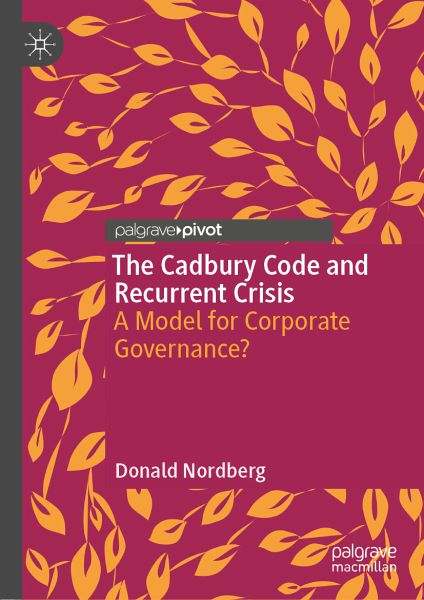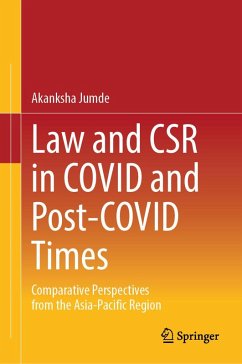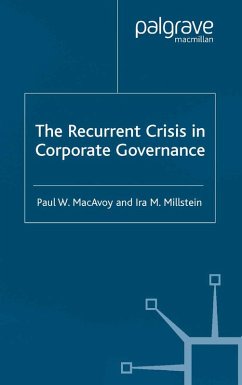
The Cadbury Code and Recurrent Crisis (eBook, PDF)
A Model for Corporate Governance?
Versandkostenfrei!
Sofort per Download lieferbar
40,95 €
inkl. MwSt.
Weitere Ausgaben:

PAYBACK Punkte
20 °P sammeln!
This book raises questions about a hallmark mechanism of corporate governance - the use of codes of practice. It undertakes a critical examination of the origins and development of the UK code of corporate governance, which influenced codes devised around the world and practices of organisations well beyond the world of corporations listed on stock exchanges. Much lauded as a model of good governance, its core principles have persisted for almost 30 years. Yet during that time repeated crises in corporate governance have arisen, suggesting that it has not fully addressed the problem it was mea...
This book raises questions about a hallmark mechanism of corporate governance - the use of codes of practice. It undertakes a critical examination of the origins and development of the UK code of corporate governance, which influenced codes devised around the world and practices of organisations well beyond the world of corporations listed on stock exchanges. Much lauded as a model of good governance, its core principles have persisted for almost 30 years. Yet during that time repeated crises in corporate governance have arisen, suggesting that it has not fully addressed the problem it was meant to solve.
This book will be valuable reading for scholars working on business ethics, corporate governance, and business history.
This book will be valuable reading for scholars working on business ethics, corporate governance, and business history.
Dieser Download kann aus rechtlichen Gründen nur mit Rechnungsadresse in A, B, BG, CY, CZ, D, DK, EW, E, FIN, F, GR, HR, H, IRL, I, LT, L, LR, M, NL, PL, P, R, S, SLO, SK ausgeliefert werden.












